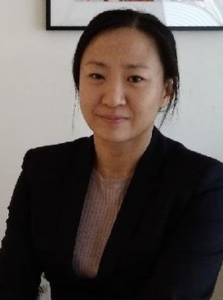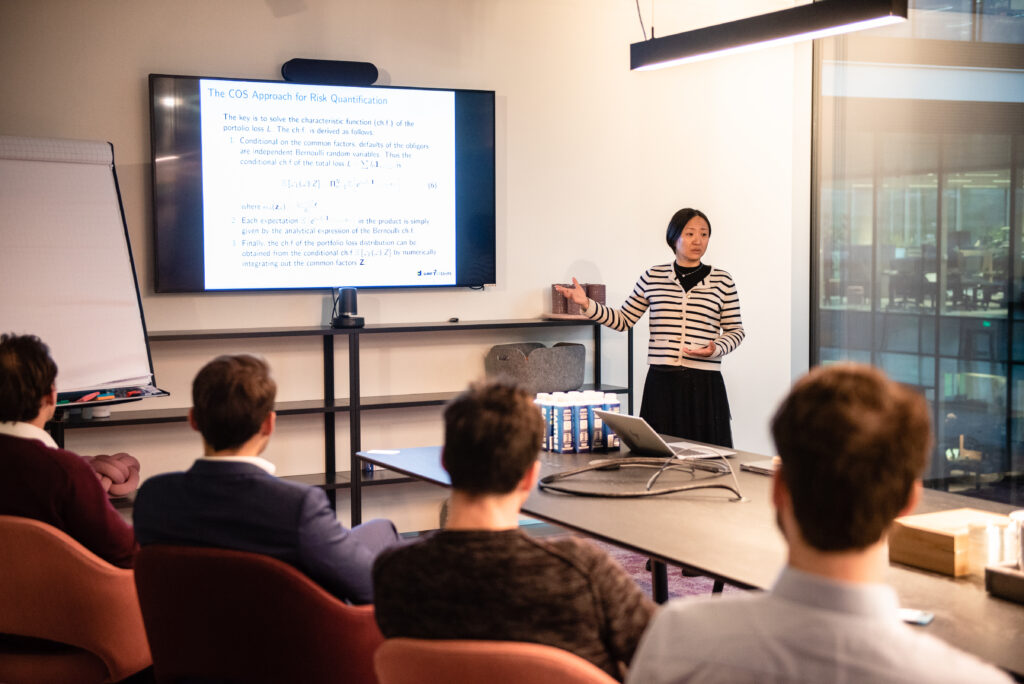Fang Fang
TU Delft and FF Quant Advisory
A New and Efficient Fourier Method for Risk Quantification and Allocation of Credit Portfolio

The slides shown at the event can be found here.
Herewith we present a novel Fourier method for risk quantification and allocation of credit portfolios in the factor-copula framework. The key insight is that, compared to directly estimating the portfolio loss distribution, it can be much more efficient to solve the characteristic function (ch.f.) instead, and then invert it to the real domain to recover the cumulative distribution function (CDF) semi-analytically, via the popular Fourier-cosine (COS) method (with some extension). As for risk allocation, we show that, via the Bayes law, the original problem can be transformed to the evaluation of a conditional CDF, which can again be solved following the same insight. This method thus not only serves as a fast solver for portfolio-level risk quantification, but also fills the niche in literature that an accurate numerical method for risk allocation is lacking. Theoretical proof of the error convergence is also provided, which effectively justifies the stability and accuracy of this method in recovering CDFs of discrete random variables in general. For real-sized portfolios, the calculation speed and accuracy are tested to be significantly superior to Monte Carlo simulation in the two-factor set-up. A Gaussian copula and a Gaussian-t hybrid copula are taken as examples to illustrate the flexibility of this method regarding copula choices; Value-at-Risk, Expected Shortfall (ES) and Euler allocation of ES are risk metrics selected for testing. The potential application scope is wide: Economic Capital for Banking Book, Default Risk Charge for Trading Book, valuation of credit derivatives, etc.
Dr. Fang Fang is the director of FF Quant Advisory B.V. and a part-time assistant professor of Applied Mathematics at Delft University of Technology. In 2006 Fang founded FF Quant Advisory, a quantitative consulting company that offers service to banks, trading companies, brokers, and pension funds, and FinTech companies. Since 2021 she has been back to TU Delft on part-time basis. She teaches quantitative finance courses at both undergraduate and graduate levels, and supervises Ph.D and master students. Her current research interests are efficient computational methods for XVA and the application of machine learnings methods in finance. Fang is well known for her contribution to the development of the COS method.
